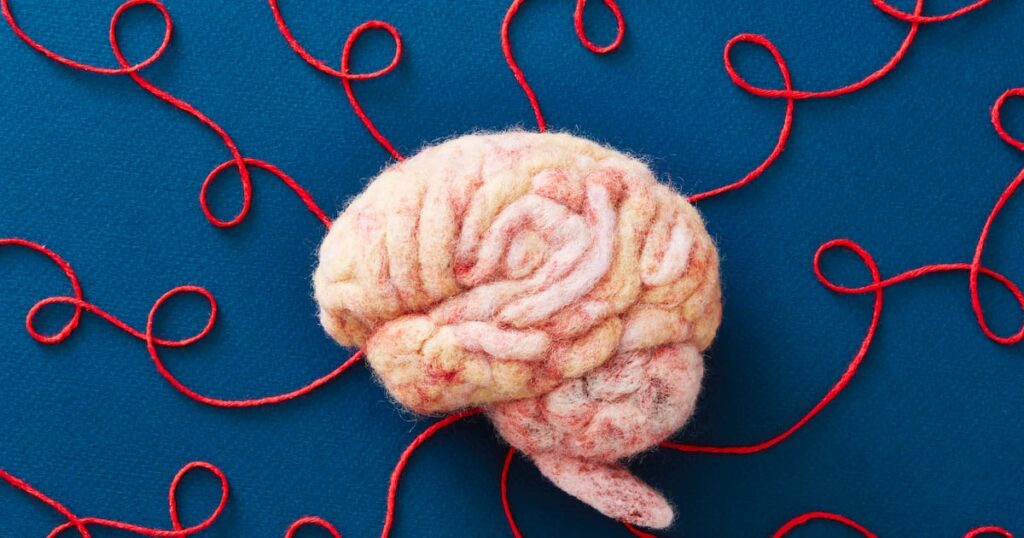This sector is growing faster than many other markets with a compound annual growth rate (CAGR) of 4% and countries like the UK and France showing steadily increasing demand.
While Germany and Italy currently lead spending on memory and mood supplements (accounting for 26% and 18% of Western Europe, respectively), these figures are beginning to plateau.
In contrast, the UK and France—which represent 14% and 13% of the market—are expanding at twice the rate of other Western European countries. Other fast-growing markets include Finland, Greece, Spain and Sweden.
There is also an interesting evolution happening in the sector, according to Nick Stene, Euromonitor’s senior global insight manager for consumer health, who said mood and relaxation are quickly becoming just as sought after as cognition and memory.
“Underlying this market growth is a large shift in emphasis,” he said. “Ten years ago, the split was 60/40 for memory and cognitive spend to mood and anxiety spend, but today that split is closer to 50/50, with spend on mind health such as mood, relaxation and reduced anxiety rising quickly.”
Euromonitor forecasts the mind health supplement market to continue to grow at a fast rate due to hype around new ingredients, particularly those targeting cellular health.
“The expectation from the sector is that the cognitive aspect will likely accelerate due to recent cellular health messaging from emerging ingredients like NAD+ and resveratrol that we see resonating with consumers and driving fast growth in 2025,” Stene said.
What’s trending in the mind health market?
Earlier this year, Innova Market Insights published a report assessing global consumer trends in supplement and beverage ingredients for mental performance. The report found that, overall, growth in this market is extremely strong, with nearly one in five product launches carrying a mental performance claim.
B vitamins were cited as the leading supplement for brain health, followed by other vitamins, minerals and omega-3s. These ingredients are highly trusted by consumers and are frequently incorporated into food, beverages and supplements aimed at enhancing mental performance.
An increasing number of consumers are also seeking cognitive benefits from probiotics, botanicals and functional mushrooms, with lion’s mane and ashwagandha among the most popular.
Data also shows a shift in consumer preference away from traditional formats like powders and capsules towards carbonated soft drinks and functional hot drinks, which are quickly gaining traction. This trend is largely driven by younger consumers, who are the most likely to purchase products for brain health. However, the report highlights that older consumers represent an untapped market with significant potential.
Reflecting this trend, Scotland-based brand Love Mushrooms has observed a significant surge in interest among middle-aged and older women, likely driven by menopause-related symptoms such as brain fog, memory problems, poor concentration and anxiety.
“Interest spans all ages, but we’re seeing a surge among women aged 35 and over, particularly those navigating perimenopause and menopause,” said Rachael Hall, director of health and beauty at Love Mushrooms. “There’s also rising curiosity among younger adults seeking natural alternatives to pharmaceuticals.”
But what are consumers looking for when it comes to mushroom supplements? And which species are consumers reaching for the most?
Mushrooms: A ‘multi-pathway approach’
Functional mushrooms offer a multi-pathway approach to mind health, according to Hall, who said lion’s mane, reishi and cordyceps are trending within the category.
“Many functional mushrooms act as adaptogens, supporting the body’s ability to cope with mental and emotional stressors,” she said. “Research suggests that species like lion’s mane stimulate nerve growth factor, supporting general cognition, neuroplasticity and memory, while reishi and cordyceps are known to modulate stress response via the HPA axis, helping balance cortisol and promoting calm focus.”
Hall highlighted that lion’s mane has entered the mainstream, propelled by emerging scientific research and media exposure, with major UK supermarkets such as Sainsbury’s and Tesco’s now stocking this ingredient.

Within the active nutrition sector, cordyceps has grown in popularity due to its reported ability to increase mental stamina and energy, benefits especially valued by consumers who avoid caffeine. This appears to correlate with the top three concerns consumers aim to address—focus, memory and stress relief—which are particularly important to individuals navigating neurodiversity and hormonal shifts, Hall said.
“We also see growing interest in emotional regulation, sleep quality and mental clarity/brain fog, especially among those living high pressure lifestyles,” she added.
Other trends in the category include supplement stacking—combining mushrooms with other mushrooms or botanical ingredients—along with personalization and education-first branding.
“Overall, consumer awareness is deepening as more brands rise up and big retailers start to stock products,” Hall said. “People are asking smarter questions and seeking transparency around efficacy, extraction and bioavailability.”
Botanicals for stress and fatigue
Botanicals have long been a cornerstone of the mind health supplements market, with plant extracts such as ashwagandha, ginseng, ginkgo biloba and bacopa extensively studied for their potential brain benefits.
With stress and poor sleep increasingly recognized for their negative effects on mind and mood, Laura López, head of product research, development and innovation at Spanish botanical extract supplier Nektium, predicts a surge in demand for botanicals targeting these consumer concerns.
“Over the next five years, the botanicals market for cognition and mind health is likely to evolve rapidly,” she said. “It’ll be driven by growing consumer demand for natural solutions with evidence-based benefits such as mental energy, focus, mood support, stress resilience and long-term brain health. Sleep will continue to be an area of great importance too.
“There will also be increasing emphasis on clinical evidence, quality, provenance and sustainability. Growth in multi-benefit formulations and functional formats such as beverages and snacks will further broaden the category’s reach.”
López also noted a growing aversion to caffeine, with consumers now increasingly turning to adaptogens as a natural solution for stress and fatigue. Despite its capacity to improve mood and performance even at relatively low doses, concerns about side effects such as anxiety and sleep disturbance are prompting consumers to search out more natural energy boosters.
While ashwagandha remains popular as a promoter of calm alertness and stress resilience, López pointed out that its 2023 ban in Denmark has led to growing interest in alternative ingredients.
“Rhodiola rosea has really benefited from this,” she said. “It has a long history of traditional use for its ability to support the mind and body in adapting to stress, helping to reduce fatigue and increase endurance. Because of that, many consumers are using it to restore balance, maintain well-being and cope with the challenges of modern life.”
She also noted increasing consumer concern surrounding inconsistent bioactive standardization, poor quality extracts and the risk of adulteration. This is driving demand for better quality plant products which are backed up by high-quality scientific research.
“Plant materials can be tainted or replaced with lookalikes, leading to inferior products being passed off as high-quality extracts,” she said. “The push for transparency, traceability and strong clinical evidence to back up benefits provides an advantage for sustainably sourced and identity-guaranteed products.”

Vitamins, minerals and omega-3s for cognitive function
Although the mushroom and botanical markets are growing quickly, vitamins, minerals and omega-3s still lead the way as the most popular supplements for mind health.
B vitamins are perhaps the most widely recognized for their cognitive benefits, with folate, vitamin B12 and B6 all extensively studied for their positive effects on brain function.
Zinc, iron, iodine and magnesium also have EFSA-approved health claims related to cognitive function, substantiating their brain health benefits, as does DHA (docosahexaenoic acid), a marine omega-3 found in fish.
Omega-3 fatty acids have long been touted as an integral nutrient for brain health, with clinical data showing that it supports cognitive function by maintaining cell structure, improving neurotransmitter release and reducing inflammation.
As the most abundant polyunsaturated fatty acid in the brain, DHA is the most studied form of omega-3, according to Dr. Derek Tobin, business development and clinical science manager at Epax, a Norwegian supplier of marine ingredients.
“DHA is important in the structure and function of the brain,” he said. “At a cellular level, DHA helps the nerves to efficiently communicate. It is also a precursor to important signaling molecules such as endocannabinoids and as a stimulator of the neuroprotectant, BDNF.”
Eicosapentaenoic acid (EPA) is another type of omega-3 fatty acid found primarily in fish and in small amounts in the human brain.
“While DHA makes up 90% of omega-3 in the brain, EPA is almost indetectable,” Tobin said. “Despite this, there is widespread evidence that EPA is important in wellness, mood and depression. Several guidelines recommend one to two grams of EPA daily using a high EPA:DHA ratio oil for the nutritional management of depression.”
Algae and krill oil are also significant source of beneficial fatty acids and are gaining traction due to consumer sustainability concerns.
“There is definitely growing recognition of algae oil as a sustainable and effective source of omega-3 for mind health,” said Christel Lemaire, marketing manager at French microalgae ingredient supplier Microphyt. “Consumers today are increasingly aware that brain health matters at every stage of life, from academic performance to healthy aging. Sustainability and purity are also strong drivers of interest.”
She added that within a broader and expanding algae-based ingredients market, the microalgae segment is progressing more gradually. This slower growth is mainly due to limited consumer awareness and regulatory constraints, as only eight species of microalgae are currently approved for human consumption worldwide.
Other omegas are also beginning to gain traction, according to Tobin, with early research suggesting that omega-9 and omega-11 may also support brain health.
“With regards to other omegas, there are several studies showing olive oil, with omega-9, as part of the Mediterranean diet promotes cognitive function and slows cognitive decline in the elderly,” he said. “The effects of marine derived omega-9 (gondoic acid), as well as omega-11 (cetoleic acid) on brain health are at early stages of research with current research ongoing on the effects of cetoleic acid on [cognitive decline].”
Cellular health: An emerging category for brain health
Euromonitor is also paying close attention to the emerging cellular health category, with NAD+ variants among the fastest-growing ingredients in the market, according to Stene.
While cellular health supplements typically make claims related to longevity and healthspan, he noted that these ingredients can also benefit brain health, with preclinical models suggesting improvements to cognitive function and reduced neuroinflammation.
“NAD+ variants are the most disruptive [supplement category] so far,” Stene said. “Health claims linked to this ingredient on supplements include supporting energy production, DNA repair and healthy aging, with potential benefits implied for metabolism, brain and heart health.”
Euromonitor reported that around 6% of supplements launched since July 2024 carried some form of NAD+ messaging, equating to around one in 10 longevity supplements. Stene described this as an ‘escaping niche’ which is rising far faster than many industry teams expected.
The data suggests the polyphenol resveratrol is also gaining in popularity, although it is currently only featured in 2% of new SKUs launched since July 2024. This is an intriguing finding given the ingredient’s somewhat controversial past linking it to overhyped claims and mixed clinical evidence.
Resveratrol rose to prominence in the early 2000s after research by David Sinclair—a professor of genetics at Harvard Medical School—showed that resveratrol may activate SIRT-1, a protein that plays a crucial role in cellular processes and has been linked to lifespan extension.
However, when researchers tried to replicate this in vitro finding in mice, no lifespan extension was observed. In humans, resveratrol has also failed to demonstrate any lifespan benefits.
Despite resveratrol’s paradoxical past, Stene noted that scientists are now exploring its potential to protect against cognitive decline, contributing to its resurgence.
“This antioxidant ingredient is linked to some of the hopes surrounding this sector for finding ways to protect against neurodegenerative disease,” Stene said. “Human evidence of benefits is limited and mixed and at an earlier stage of testing, but this is opening up messaging around cell senescence, sirtuin stimulation, memory and cognitive function.”

